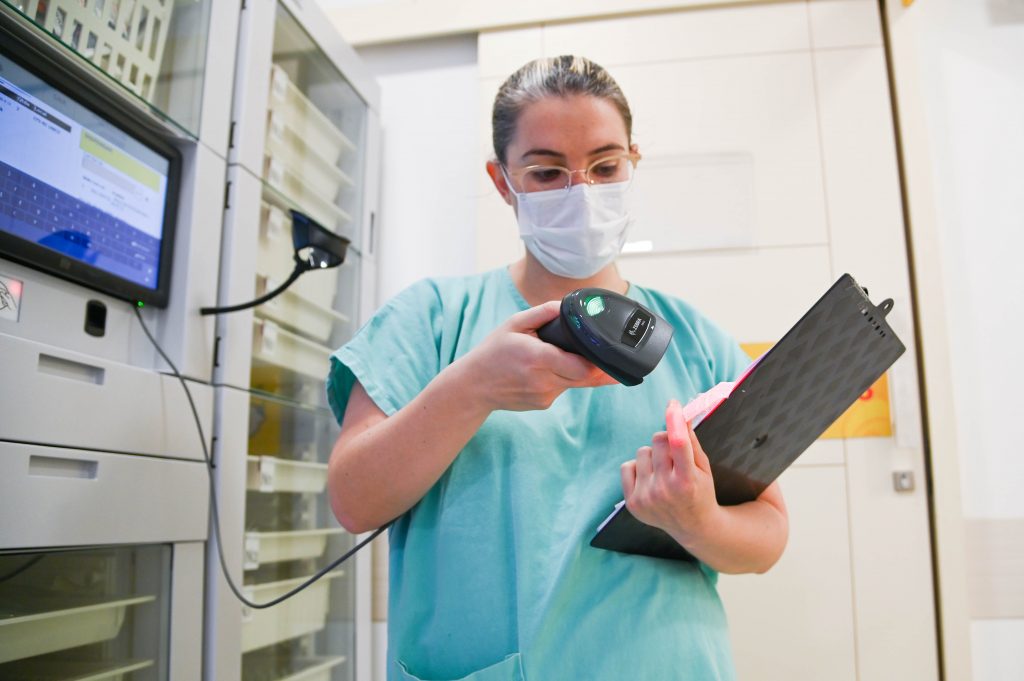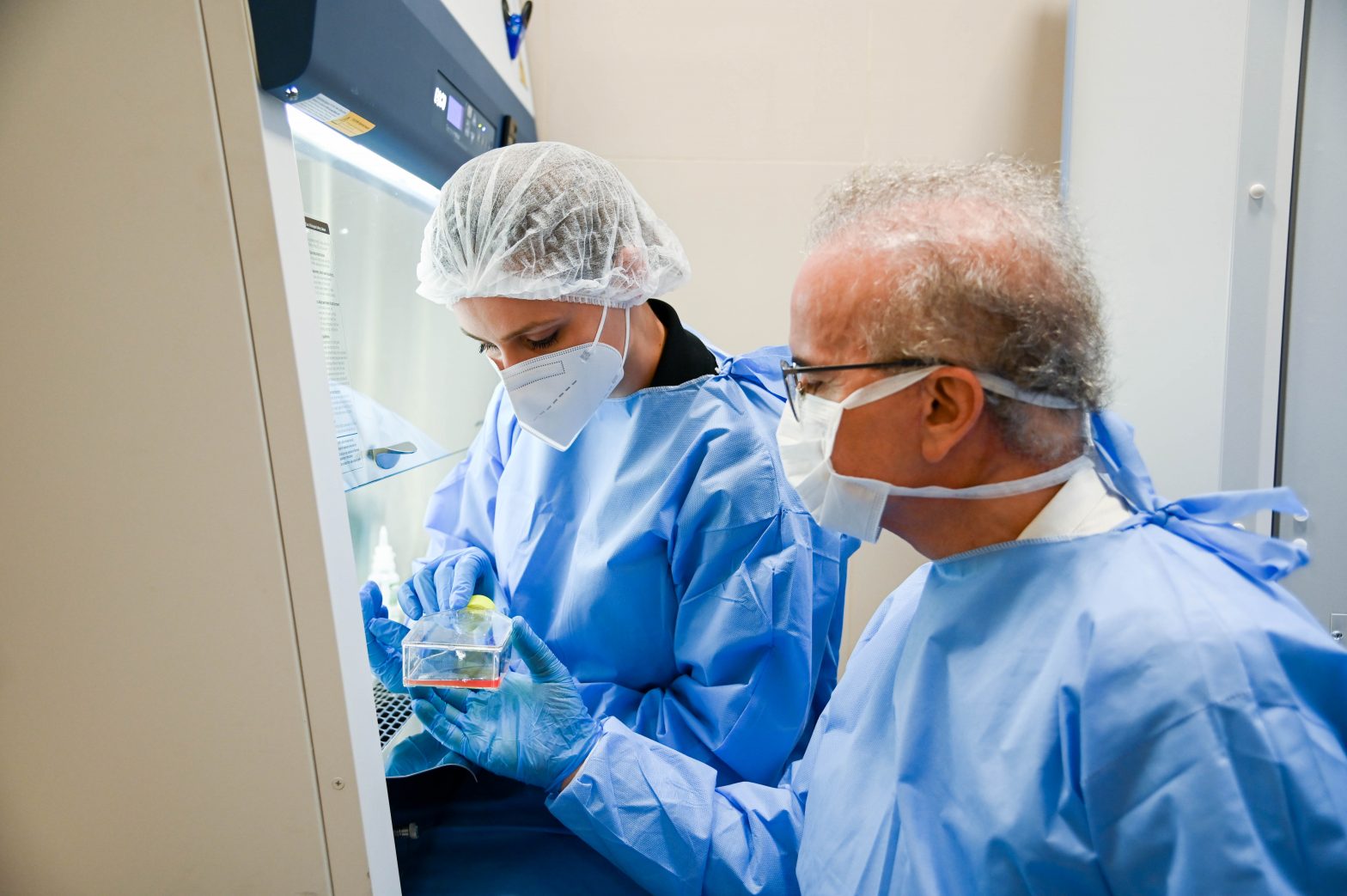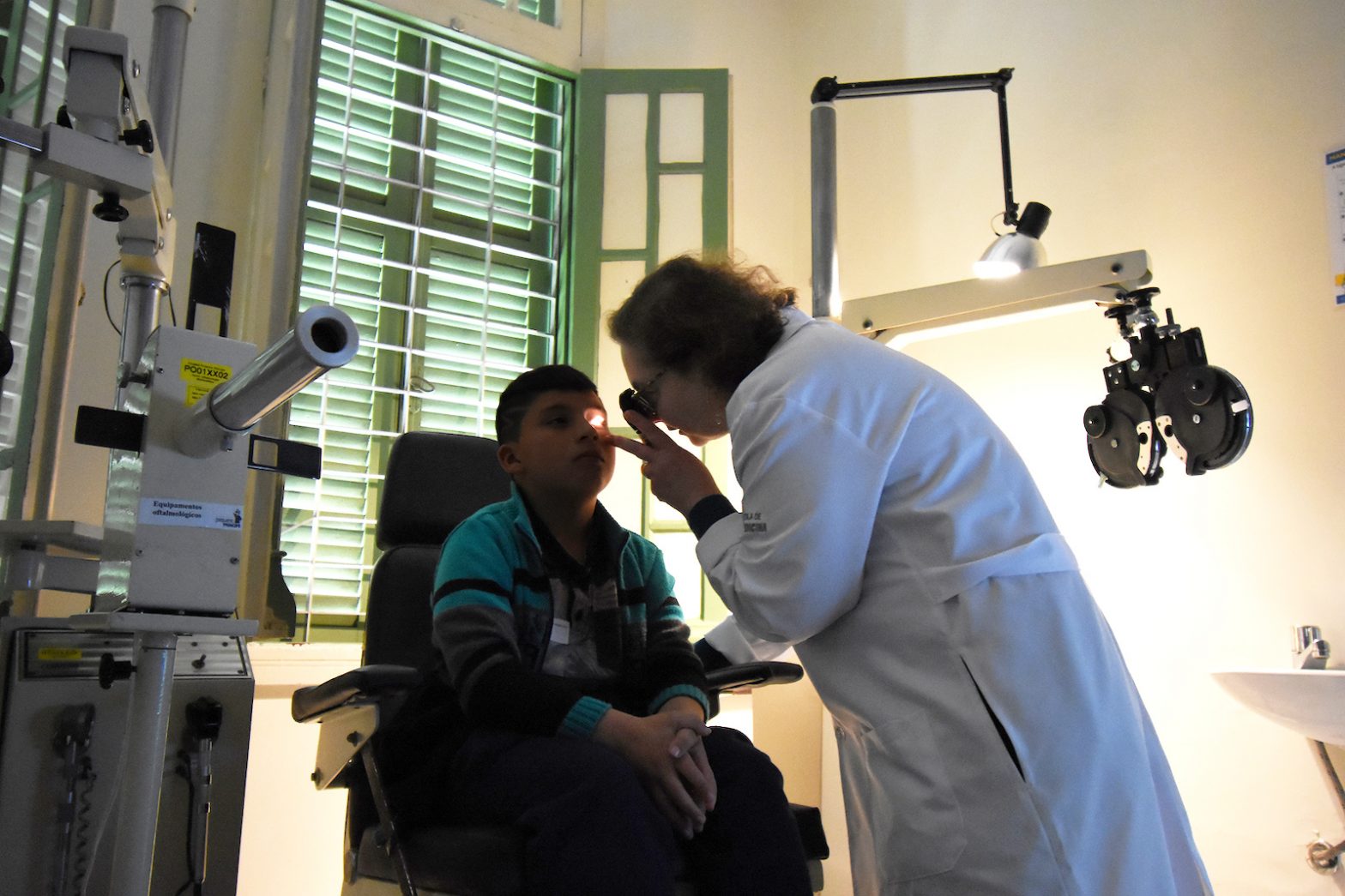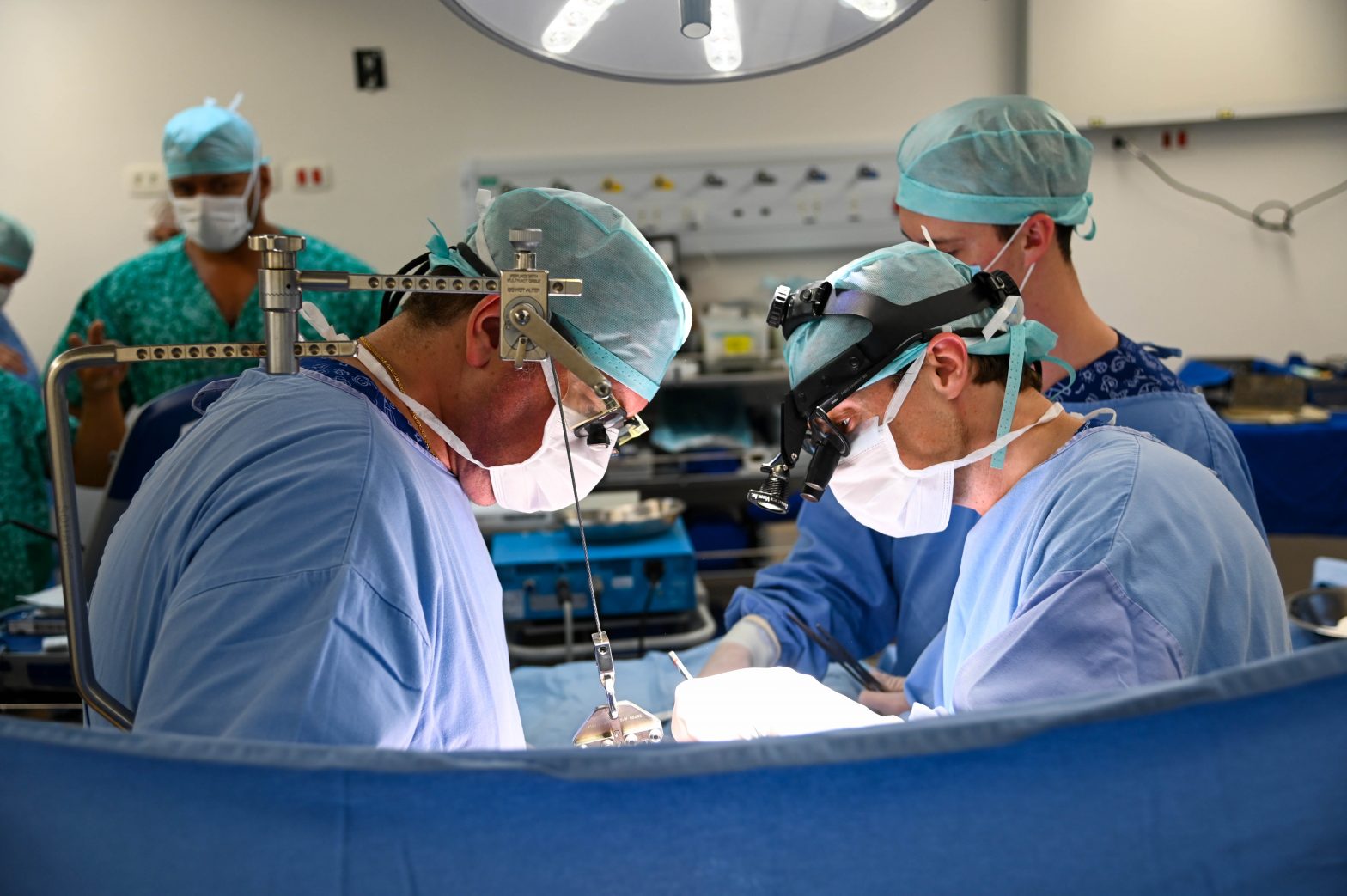Electronic drug dispensers optimize care
The storage equipment for medicines and materials for health assistance helps to improve patient safety and the professional performance
Pequeno Príncipe Hospital now has electronic dispensaries. These are devices that store medicines and hospital supplies frequently used in the care of children and adolescents. The investment in the two dispensaries totalled US$ 75,195.04, made possible through the tax waiver project Pelo Direito à Vida II. The initiative began in 2018 and was approved by the State Council for the Rights of Children and Adolescents (CEDCA, abbreviation in Portuguese). Its main goal is to improve hospital and outpatient care with the provision of modern high-tech equipment, resources and inputs.

Their great advantage is the safety provided to the patient, since only the components that appear in the prescription of patients linked to the inpatient unit or Emergency Care are released, according to the times and dosages previously determined by the doctor. In addition, the use of electronic dispensers allows the incidence of failures in the operation to be reduced, since the availability is automated.
Another benefit combined with security is that only authorized and trained professionals can use the dispensaries, reducing the chances of mistakes. “Access to the equipment is carried out through biometrics. Only pharmacists and pharmacy assistants, that replace equipment, and nurses and nursing technicians are able to dispense medication and care materials, ensuring greater safety for patients and professionals,” explains Julliana Bianco Giuriatti Bassani, coordinator of the Pequeno Príncipe Hospital Pharmacy.
The nursing coordinator of the Emergency Care units for patients of Brazilian Public Health System (SUS, in Portuguese) and health insurance plans , Denise Santana, reinforces that safety is the differential of the devices. “The dispensers provide greater security for the patient, since he receives the medicine that appears in the electronic prescription, and this careful process also benefits the nursing team, avoiding failures,” she details.

Production of handling and request reports, traceability of medicines through barcode reading, management and control of stocks and supplies, as well as optimization of time in bedside care – since professionals no longer need to move from the sector to dispensing medication – are other advantages provided by the investment.
Pequeno Príncipe Pharmacy Service
The Pharmacy Service at Pequeno Príncipe Hospital is divided into technical and clinical management, with the aim of promoting safety in the drug therapeutic chain, and has different areas of activity, such as unit dose, satellite pharmacies, clinical pharmacy, the chemotherapy pharmacy and dispensing.
In 2022, 2,402 doses of medication were dispensed per day at the institution, in addition to that, 66,675 were broke down, on average, per month. In Pequeno Príncipe, pharmacy professionals have the mission of dividing doses of medications used daily at the Hospital, since most of them do not have their own presentation for children and adolescents.
Your support is also needed
If you also want to be a supporter of Pequeno Príncipe Hospital, committing to projects that contribute to saving lives, place your donation to the institution’s initiatives. US-based donors can contribute to Pequeno Príncipe’s projects using tax benefits. To donate from the US, click here.
Click below and take a tour through the Pequeno Príncipe pharmacy.
More
Purchased with funds from Gala, equipment contributes to oncological research
Biological safety cabin allows the manipulation of human cells and tissues, helping in research that seeks new treatments
Research investigates different aspects of blindness and low vision
The goal is to improve the quality of life and treatments aimed at visual impairment, which is the most prevalent in Brazil
Cardiovascular Surgery Service performs unprecedented procedure in Brazil
Implantation of a pacemaker with an envelope of antibiotics was carried out in December 2022, debuting the use of technology in the country









